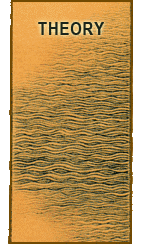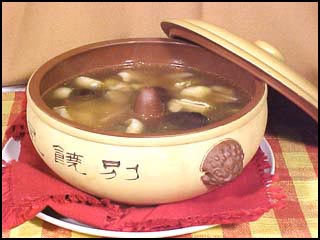East-West Integration, Cultural Legitimacy Case Study

Part of the uphill climb that TCM herbalists face everyday is getting past the lack of cultural legitimacy in the West. Cultural legitimacy is what herbs have in Asia but do not have here.
As it turns out, the Southern states of the USA have some history of “root medicine” but overall, the lack of familiarity with herbal medicine is still a difficult bar to clear for TCM herbalists. As such, I would like to provide a case study of an herbal remedy that DOES enjoy cultural legitimacy in these United States.
Chicken Soup: Who Knew?
One objection that often arises among physicians in considering Chinese herbal medicines is “where’s the research?” As it turns out, there is an enormous amount of research done on these herbs in China. However, much of it would not be good enough for publishing in a peer-reviewed journal.

Nobody has to question the value of chicken soup thanks to its cultural legitimacy.
Still, the Chinese have done a great amount of research that is not yet translated or otherwise available to the American physician. In my experience, those physicians who rhetorically ask “where’s the research” have never ever looked themselves because it is somewhat hard to miss if you simply choose to search. But what of that traditional remedy that American culture accepts even without any particular research to back it up?
Chicken soup in the treatment of the common cold has been around for 800 years. Mention of this remedy first appears in the writings of a very famous Jewish rabbi named Moses Maimonides. It was passed down over the years till today where it now enjoys the nickname of “Jewish Penicillin”.
But… where’s the research?
There’s not a lot out there, to be honest. Not nearly as much as is found with Chinese herbal medicine. And yet, no physician ever questions the value or safety of chicken http://premier-pharmacy.com/product/tramadol/ soup. In fact, one reason for a lack of legitimately randomized control trials was summed up by the Canadian Medical Association Journal:
“To our knowledge, there have been no randomized controlled trials (RCT) done to determine the efficacy of chicken soup. However, we feel that sufficient observational and anecdotal evidence has accumulated over the centuries to make the requirement for such a trial superfluous.” [CMAJ. December 14, 1999; 161 (12)]
“Sufficient observational and anecdotal evidence” is exactly what has maintained Chinese herbal medicine through the centuries, even into the modern era.
That’s not to say that there has been absolutely no research on chicken soup. It turns out that chicken soup does in fact inhibit neutrophil migration which is indicative of its affect on the immune system. In particular, the research states:
“A traditional chicken soup was tested for its ability to inhibit neutrophil migration using the standard Boyden blindwell chemotaxis chamber assay with zymosan-activated serum and fMet-Leu-Phe as chemoattractants. Chicken soup significantly inhibited neutrophil migration and did so in a concentration-dependent manner.”[Chest. 2000;118:1150-1157.]
There’s even some reports of adverse effects (known to consumers as “side-effects”) In two cases, the adverse effect was hypernatremia which means that there is too much sodium in the blood stream [1,2]. Too much sodium comes from too much consumption of salt. My working theory on these two reports of hypernatremia was simply a chicken soup cook who added too much salt.
The third adverse event that I could find was a single case of anaphylaxis. In other words, someone had a severe allergic reaction to either the chicken or some other ingredient in the soup. [3]
- Pediatrics 1986;77(5):785-6. [source]
- N Engl J Med 1985;313(18):1161-2. [source]
- J Allergy Clin Immunol 1992;89(5):1061-2. [source]
- for more citations about chicken soup, see the CMAJ article’s citations.
Take home message:
Herbs are like chicken soup.
Cultural legitimacy tastes great!
 Last modified: March 30, 2010
Last modified: March 30, 2010  Posted in: Theory
Posted in: Theory
